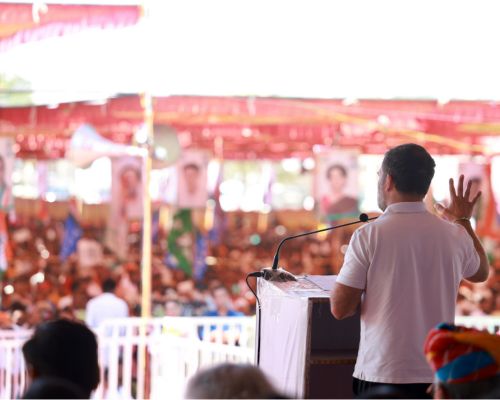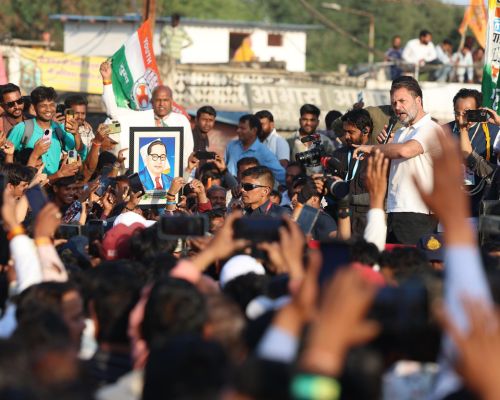The Caste Census: A path to rights, representation, and well-being
A caste census will shatter misconceptions about the state of our country, and start a new conversation about rights, representation, and accountability. At this time of deepening inequality, it is an essential step so that every citizen, especially those at the margins, can access what the constitution promises them. This wave has started in Bihar, is underway in Karnataka and Telangana, and the Congress will bring it to every corner of the country.
If you have been listening to the government, you may have noticed something surprising. They claimed in January 2024 that only 11% of Indians were poor, and in March they claim only 5% of Indians are poor. This means 8 crore Indians were no longer poor in 2 months! They also deny there is any unemployment problem.
If you listen to the public, however, you will hear a different story. Ask yourself - are 95% of Indians well-off? Ask any young person - do youth feel assured of a job?
The truth is that a dangerous disease affects India today - the disease of social and economic inequality. Not only are there two Indias - of the rich and of the poor, it is also that some sections of society are mostly poor and never seem to get the benefits of "development".
We also have other symptoms which show this disease, which can be seen when we look at who the poor are, and who the rich are. Dalits, Adivasi, and OBCs constitute 85% of daily wage labourers, but only 7% of CEOs and board members of top companies. In government, the judiciary, education, media - the same stark differences can be seen.
Most of the poor of the country are Dalits, Adivasis, and the backward classes. They are the ones who work the hardest, yet they do not receive their due share and rights. How is there such a stark difference in the earnings of those who work and those who make others work?

Without counting, there is no truth.
We need a powerful test to diagnose the truth of the country today - and then plan treatment. We have such a test with us - a socio-economic and caste census.
What is a caste census? It is when the Government counts every person in the country. Every household is visited, and you will be asked to provide some basic social and economic details for yourself and your family members. This includes things like your age, education level, job and income, condition of your house, the assets you have and about the caste you belong to.
Counting every person in every household brings out the truth of their social and economic situation, as well as the situation of their community. Today, Indians do not know their own reality - because the government has not conducted a nation-wide census in nearly one-and a half decades.
If you are sceptical, look at the results of a caste census conducted in Bihar. Nearly 34% of households in Bihar were surviving on less than 6,000 rupees a month - barely enough to meet their basic needs. Of these, 88% were Dalit, Adivasi, or from backward classes, including minorities. Similarly, we can see which households and communities have access to land, good jobs, basic assets, and so on.
Such detailed data shows the reality of every social-economic class. It brings the specific needs, challenges, and share of wealth and opportunities to light.

Counting leads to justice
The Caste-Census is a crucial tool to address the problem of inequality facing our country. That is why Rahul Gandhi has prioritised the issue of 'ginti'. During the Nyay Yatra to connect with India, his conversations with the people highlighted that without a jatigat and aarthik ginti - a socio-economic and caste census - the issues of rights, representation, and equitable access to resources cannot be properly addressed.
Only by counting each citizen and their problems and opportunities can we see where each person and community stands, which will show us where we stand as a country. We will also know what policies of the government have worked, and which have not. The caste census will make the government accountable to the people.
The caste census will also make the design of effective and fair government policies possible. The data provided through the census creates a much better understanding of the realities of the people, on which policies can be built - whether related to resource allocation, opportunities for advancement in education and employment, or availability of basic facilities. Only then can the problems of the past decade be overcome, and opportunity made available for all.
Most importantly, for a fair country, all important decisions must be made with the full involvement of every community. This Ginti will make all citizens partners in the country's progress and recognise their stake in the country's resources and the rights which they are constitutionally entitled.
Only then can every Indian hold their head high and stand tall. From their homes and villages to anywhere in the world. Only then can we as a country walk on the path of fairness and equity towards a brighter future.